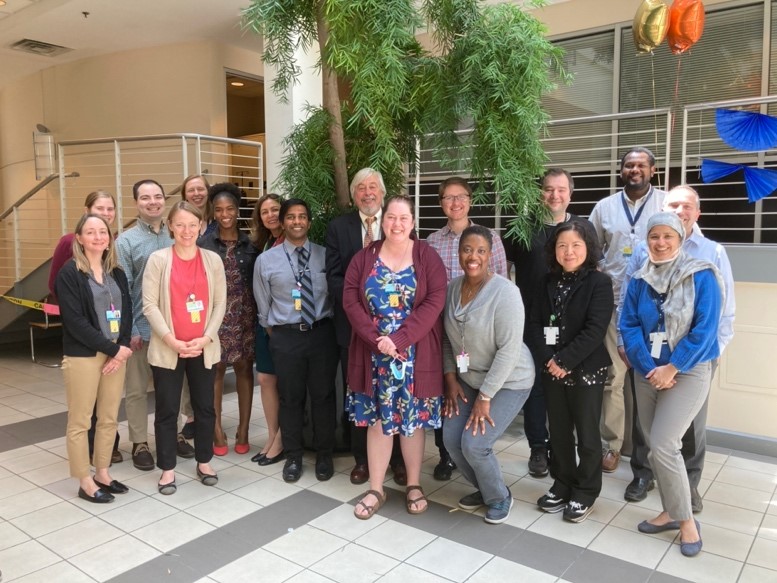Associate Professor Rita R. Kalyani, MD, MHS, is a Core Faculty member with the Center on Aging and Health, and she is a thought leader in diabetes research and patient care. Her clinical research interests include studies on muscle loss and disability among older adults with diabetes and, broadly, the epidemiology of diabetes and its complications in high-risk populations. In addition to being the Editor-In-Chief of the Johns Hopkins Diabetes Guides, she published her second book for people living with diabetes this past spring called, Winning with Diabetes: Inspiring Stories from Athletes to Help You Thrive that she coauthored with colleagues Dr. Mark Corriere and Patrick Smith (Johns Hopkins University Press, 2023). The book is available from the publisher. From the book blurb:
An ultra-marathoner, a three-time Olympic gold medalist, a major league pitcher, and an NFL star. What do these elite athletes have in common? They reached the top of their field—all while living with diabetes.
Essential reading for people who have diabetes and their families, “Winning with Diabetes” highlights the challenges, perseverance, and successes of sixteen elite athletes living with the disease. From mountain climber Will Cross to college softball champion Kylee Perez, to NBA legend Dominique Wilkins, and many more, these are the real-life stories of diagnosis, adapting new day-to-day routines, finding support, training, competing, and connecting with communities of other people living with diabetes. The book features advice for facing common fears and challenges, both on and off the playing field. Each chapter includes interviews with athletes about their experiences, paired with expert commentary from the authors. Chapters also include summaries of key concepts, along with illustrations and other graphics.
“Winning with Diabetes” will inspire readers of all ages—those newly diagnosed as well as those who have lived with diabetes for years. Written by physicians who have set the standards for management of the disease, this book brings you expert insight into finding ways to live your best life. Let the experts, the athletes, and the inspiration in “Winning with Diabetes” give you what you need to stay in the game.
For this blog, we asked Dr. Kalyani a few questions about the recent book, her research in the field, and what motivates her to inspire change for the better in the lives of real people living with diabetes.
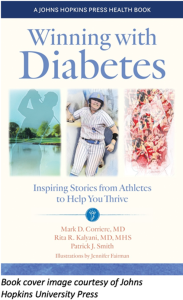 Tony Teano: Dr. Kalyani, thanks for taking the time to entertain these questions. One of the things I’ve noticed about your work is that you go through great lengths to make information about diabetes readily available to patients and caregivers. Why does public-facing, inspiring information matter?
Tony Teano: Dr. Kalyani, thanks for taking the time to entertain these questions. One of the things I’ve noticed about your work is that you go through great lengths to make information about diabetes readily available to patients and caregivers. Why does public-facing, inspiring information matter?
Dr. Kalyani: Diabetes is a chronic illness that relies heavily on the ability of the patient to self-manage their disease. Yet, health care providers may be limited during a routine clinic visit (for a variety of reasons) in their ability to adequately relay the important information needed for patients to optimally manage the disease. Our goal in writing these books has been to provide accurate, up-to-date, expert-developed educational content for patients that is quickly accessible and emphasizes the most important facts that we, as health care providers, would want any person living with diabetes or their caregivers to know. As individuals live longer, optimizing quality-of-life while living with diabetes has become a priority. The content in our books has the goal of empowering individuals with the critical knowledge that they need to confidently self-manage their disease and allow optimal management with their health care team to live a long, healthy life with diabetes.
Tony Teano: Tell us what is special about your latest book, Winning with Diabetes: Inspiring Stories from Athletes to Help You Thrive?
Dr. Kalyani: In our first book, Diabetes Head to Toe: Everything You Need to Know about Diagnosis, Treatment, and Living with Diabetes (Johns Hopkins University Press, 2018), our goal was to present medical information at a glance, with easy-to-digest bullet points on the many complications―head to toe―that people with diabetes can develop and to recognize the early warning signs before diabetes-related difficulties arise. Our purpose in the newest book, Winning with Diabetes: Inspiring Stories from Athletes to Help You Thrive, is to complement the educational content in our first book by providing inspiring stories which share the common ups and downs that people living with diabetes may encounter, and to let people with diabetes know that you don’t have to be a superstar elite athlete to thrive. Winning with Diabetes shares personal accounts from 16 top athletes, including five-time Olympic gold medalist swimmer Gary Hall Jr., WNBA pro Lauren Cox and PGA Tour golfer Scott Verplank. While almost all athletes had type 1 diabetes diagnosed either during childhood or as a young adult, some athletes such as NBA Legend Dominique Wilkins were diagnosed with type 2 diabetes later in life – after their intense training as a professional athlete had ended. The athletes’ stories are used as a basis to illustrate key aspects of diabetes and its complications, with relevant medical content further detailed in the corresponding author commentaries. The stories in the book are organized to reflect the life course of a person living with diabetes including chapters on:
1) The Diagnosis of Diabetes (Why me?)
2) Learning about Diabetes (Where did it come from?)
3) Living with Diabetes (How will I manage day-to-day?)
4) Self-care in Diabetes (How can I prevent complications?)
5) Finding Support (What will other people think?)
6) Winning with Diabetes (Can I accomplish my life goals?)
7) Building a Community (How can I give back?)
Tony Teano: What does it mean to “thrive” with diabetes?
Dr. Kalyani: There are many definitions for the word “thrive” but the dictionary definition that is most relevant states: “to progress toward or realize a goal despite or because of circumstances.” In the context of the athletes in the book, “thrive” reflects success in both achieving their professional goals and also attaining optimal health while living with diabetes. We initially sought out to understand how these athletes were successful in their professional pursuits in spite of diabetes. What we found, instead, was the exact opposite. Nearly all the athletes we interviewed attributed their success, in part, to their experience of living with diabetes. Many said the discipline and lessons they learned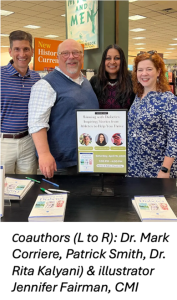 from an early age with diabetes, and the emphasis on self-care practices and healthy eating, helped them develop the maturity and determination they needed. Of note, the definition of “health” provided by the World Health Organization is “a state of complete physical, mental and social well-being and not merely the absence of disease or infirmity.” Thus, for most people with diabetes, the term “thrive” might be broadened to indicate success in achieving their goals while at the same time attaining optimal health—or, in other words, living their life to the fullest and having a long disability-free life with diabetes.
from an early age with diabetes, and the emphasis on self-care practices and healthy eating, helped them develop the maturity and determination they needed. Of note, the definition of “health” provided by the World Health Organization is “a state of complete physical, mental and social well-being and not merely the absence of disease or infirmity.” Thus, for most people with diabetes, the term “thrive” might be broadened to indicate success in achieving their goals while at the same time attaining optimal health—or, in other words, living their life to the fullest and having a long disability-free life with diabetes.
Tony Teano: What is the top takeaway you would like people living with diabetes to gain from reading this book?
Dr. Kalyani: It’s our hope that readers will gain a better understanding of diabetes and, ultimately, draw inspiration from the athletes in this book. This book disputes the idea that diabetes will beat you once diagnosed. Full page color illustrations of the athletes by Jennifer Fairman, CMI highlight inspiring quotes from the athletes such as this one from Sébastien Sasseville, Canadian mountain climber and distance runner who summited Mount Everest and ran across Canada: “I’ve used [diabetes] as a purpose, a reason to do these difficult things…I have a disease that forces me to live a healthy life. I want to figure out my full potential and see what I can do.” We hope that readers will be motivated by the candid accounts that elite athletes with diabetes share, especially when approaching their own challenges and successes while living with diabetes, irrespective of whether they are athletes themselves. The stories in the book are broadly relatable to all people with diabetes and their caregivers.
Tony Teano: What research articles have you recently published or are working on in the field of diabetes?
Dr. Kalyani: One of the articles that I’d like to highlight is a scientific statement that I recently coauthored titled, “Hormones and Aging: An Endocrine Society Scientific Statement” (June, 2023). This statement highlights the differences between aspects of aging that are normal and sometimes over-treated, and those that can be treated and deserve more attention. I authored the section on diabetes and aging, which 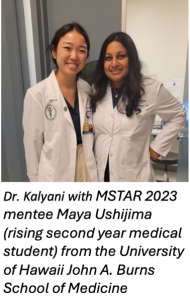 discusses unique aspects regarding the pathophysiology, epidemiology, and clinical care of diabetes in older adults, as well as current research gaps. The goal of the statement is to inform future research on the prevention and treatment of age-associated endocrine health problems such as diabetes. Other research that our group is working on in the field of diabetes includes ongoing studies that investigate methods to reliably quantify the degree of contractile muscle loss in adults with insulin resistant states and, further, studies to identify those individuals with diabetes at highest risk for the development of functional disability. Our hope is that this research can ultimately inform the development of treatments to preserve physical function for people with diabetes as they age in the future. I have particularly enjoyed being a faculty mentor over the past few years to medical students from around the country, as part of the NIA-funded Medical Student Training in Aging Research (MSTAR) program at Johns Hopkins. It has been a privilege to mentor the next generation of diabetes and aging researchers and celebrate their successes.
discusses unique aspects regarding the pathophysiology, epidemiology, and clinical care of diabetes in older adults, as well as current research gaps. The goal of the statement is to inform future research on the prevention and treatment of age-associated endocrine health problems such as diabetes. Other research that our group is working on in the field of diabetes includes ongoing studies that investigate methods to reliably quantify the degree of contractile muscle loss in adults with insulin resistant states and, further, studies to identify those individuals with diabetes at highest risk for the development of functional disability. Our hope is that this research can ultimately inform the development of treatments to preserve physical function for people with diabetes as they age in the future. I have particularly enjoyed being a faculty mentor over the past few years to medical students from around the country, as part of the NIA-funded Medical Student Training in Aging Research (MSTAR) program at Johns Hopkins. It has been a privilege to mentor the next generation of diabetes and aging researchers and celebrate their successes.
Tony Teano: Clearly, you are very invested in research, clinical care, and public awareness about diabetes. Why? What motivates you to raise the bar for excellence—and constantly surpass it?
Dr. Kalyani: I first learned about diabetes in my early childhood years, as I witnessed grandparents and other family suffer complications from the disease. During medical school at Johns Hopkins, it became my focus and I decided to pursue a career in academic endocrinology. I was intrigued with all the different ways to approach and improve diabetes care, from research and the clinical side to educating people and empowering them with the knowledge to manage their disease at home. While the discovery of new knowledge is critically important to move science forward, the dissemination of that knowledge to those with the disease and who can most benefit is also important, in order to facilitate its implementation in clinical practice. Diabetes is a widely prevalent disease, that is projected to exponentially increase in the coming decades, with the highest prevalence in older adults— an estimated 1 in 4 Americans over the age of 65 years has diabetes. Research, clinical care, and public awareness are interlinked pursuits that all aim to ultimately improve health outcomes for people with diabetes.
We are grateful to Dr. Kalyani for taking the time to answer these questions. You may be interested in related material and selected research articles authored by her:
Use of Preventive Aspirin Among Older US Adults With and Without Diabetes.
Liu EY, Al-Sofiani ME, Yeh HC, Echouffo-Tcheugui JB, Joseph JJ, Kalyani RR. JAMA Netw Open. 2021 Jun 1;4(6):e2112210. doi: 10.1001/jamanetworkopen.2021.12210.PMID: 34152419
Glucose-Lowering Drugs to Reduce Cardiovascular Risk in Type 2 Diabetes.
Kalyani RR. N Engl J Med. 2021 Apr 1;384(13):1248-1260. doi: 10.1056/NEJMcp2000280.PMID: 33789013
The Relationship of Lean Body Mass With Aging to the Development of Diabetes.
Kalyani RR, Metter EJ, Xue QL, Egan JM, Chia CW, Studenski S, Shaffer NC, Golden S, Al-Sofiani M, Florez H, Ferrucci L. J Endocr Soc. 2020 Apr 30;4(7):bvaa043. doi: 10.1210/jendso/bvaa043. eCollection 2020 Jul 1.PMID: 32666006
Body composition changes in diabetes and aging.
Al-Sofiani ME, Ganji SS, Kalyani RR. J Diabetes Complications. 2019 Jun;33(6):451-459. doi: 10.1016/j.jdiacomp.2019.03.007. Epub 2019 Apr 3.PMID: 31003924
Diabetes and Aging: Unique Considerations and Goals of Care.
Kalyani RR, Golden SH, Cefalu WT. Diabetes Care. 2017 Apr;40(4):440-443. doi: 10.2337/dci17-0005.PMID: 28325794
Pharmacologic Therapy for Type 2 Diabetes: Synopsis of the 2017 American Diabetes Association Standards of Medical Care in Diabetes.
Chamberlain JJ, Herman WH, Leal S, Rhinehart AS, Shubrook JH, Skolnik N, Kalyani RR. Ann Intern Med. 2017 Apr 18;166(8):572-578. doi: 10.7326/M16-2937. Epub 2017 Mar 14.PMID: 28288484
The relationship of fasting hyperglycemia to changes in fat and muscle mass after exercise training in type 2 diabetes.
Yalamanchi SV, Stewart KJ, Ji N, Golden SH, Dobs A, Becker DM, Vaidya D, Kral BG, Kalyani RR.Diabetes Res Clin Pract. 2016 Dec;122:154-161. doi: 10.1016/j.diabres.2016.09.026. Epub 2016 Oct 10.PMID: 27855341
Hyperglycemia predicts persistently lower muscle strength with aging.
Kalyani RR, Metter EJ, Egan J, Golden SH, Ferrucci L. Diabetes Care. 2015 Jan;38(1):82-90. doi: 10.2337/dc14-1166. Epub 2014 Nov 12.PMID: 25392294
Age-related and disease-related muscle loss: the effect of diabetes, obesity, and other diseases.
Kalyani RR, Corriere M, Ferrucci L. Lancet Diabetes Endocrinol. 2014 Oct;2(10):819-29. doi: 10.1016/S2213-8587(14)70034-8. Epub 2014 Mar 6.PMID: 24731660
Frailty status and altered glucose-insulin dynamics.
Kalyani RR, Varadhan R, Weiss CO, Fried LP, Cappola AR. J Gerontol A Biol Sci Med Sci. 2012 Dec;67(12):1300-6. doi: 10.1093/gerona/glr141. Epub 2011 Aug 26.PMID: 21873592
Hyperglycemia and incidence of frailty and lower extremity mobility limitations in older women.
Kalyani RR, Tian J, Xue QL, Walston J, Cappola AR, Fried LP, Brancati FL, Blaum CS. J Am Geriatr Soc. 2012 Sep;60(9):1701-7. doi: 10.1111/j.1532-5415.2012.04099.x. Epub 2012 Aug 10.PMID: 22882211
Glucose and insulin measurements from the oral glucose tolerance test and relationship to muscle mass.
Kalyani RR, Metter EJ, Ramachandran R, Chia CW, Saudek CD, Ferrucci L.J Gerontol A Biol Sci Med Sci. 2012 Jan;67(1):74-81. doi: 10.1093/gerona/glr022. Epub 2011 Feb 24.PMID: 21350243
Association of diabetes, comorbidities, and A1C with functional disability in older adults: results from the National Health and Nutrition Examination Survey (NHANES), 1999-2006.
Kalyani RR, Saudek CD, Brancati FL, Selvin E.Diabetes Care. 2010 May;33(5):1055-60. doi: 10.2337/dc09-1597. Epub 2010 Feb 25.PMID: 20185736
By Anthony L. Teano, MLA
Communications Specialist

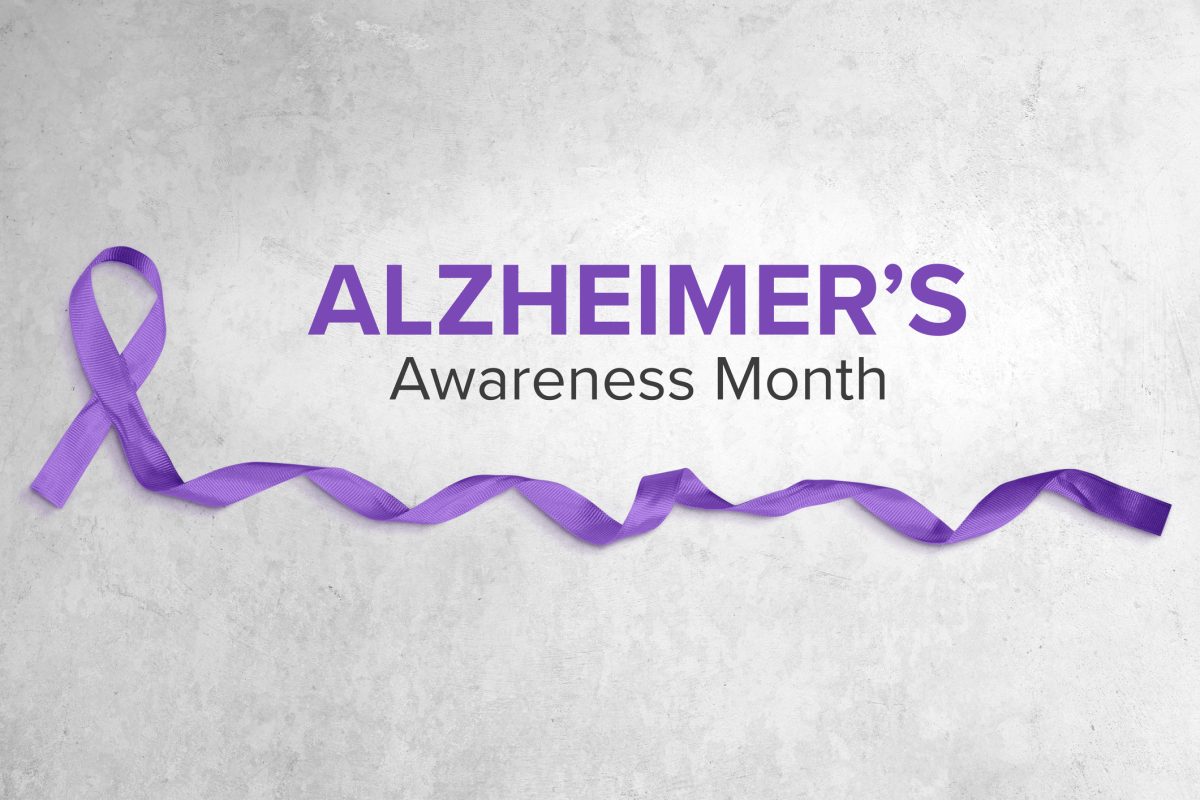
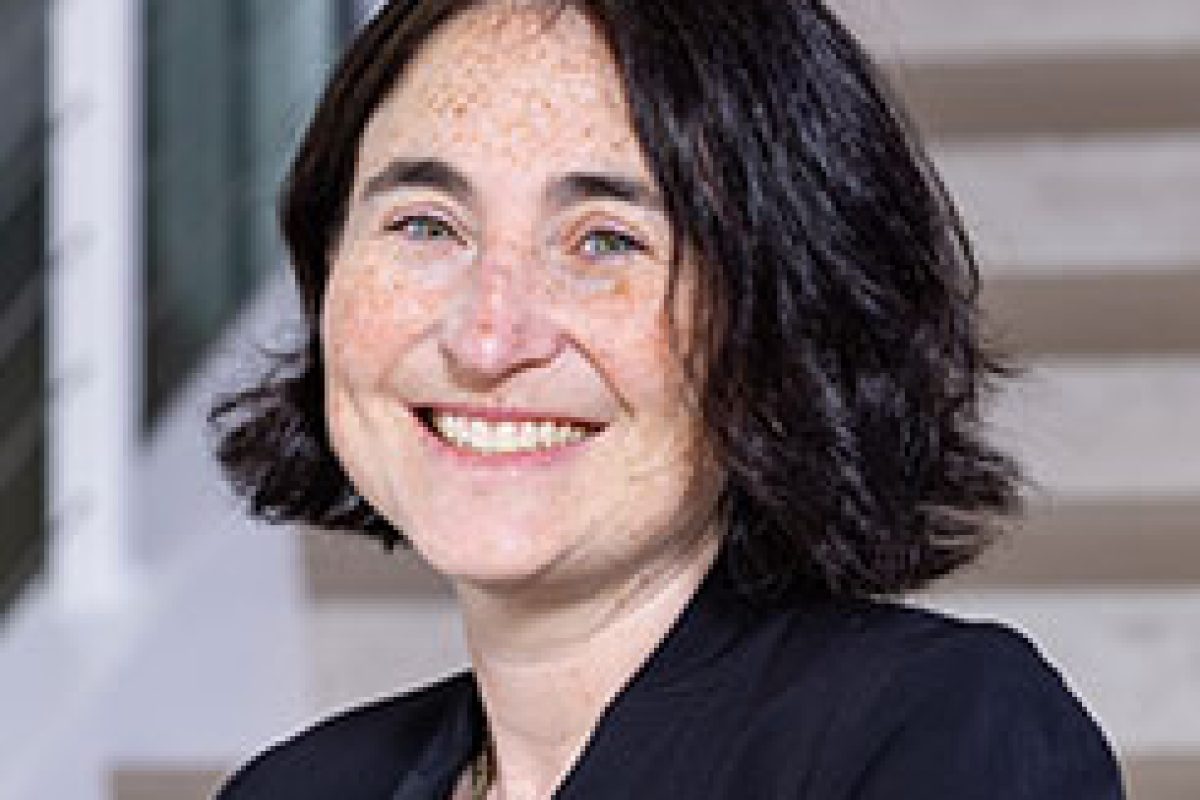

 Tony Teano: Dr. Kalyani, thanks for taking the time to entertain these questions. One of the things I’ve noticed about your work is that you go through great lengths to make information about diabetes readily available to patients and caregivers. Why does public-facing, inspiring information matter?
Tony Teano: Dr. Kalyani, thanks for taking the time to entertain these questions. One of the things I’ve noticed about your work is that you go through great lengths to make information about diabetes readily available to patients and caregivers. Why does public-facing, inspiring information matter? from an early age with diabetes, and the emphasis on self-care practices and healthy eating, helped them develop the maturity and determination they needed. Of note, the definition of “health” provided by the World Health Organization is “a state of complete physical, mental and social well-being and not merely the absence of disease or infirmity.” Thus, for most people with diabetes, the term “thrive” might be broadened to indicate success in achieving their goals while at the same time attaining optimal health—or, in other words, living their life to the fullest and having a long disability-free life with diabetes.
from an early age with diabetes, and the emphasis on self-care practices and healthy eating, helped them develop the maturity and determination they needed. Of note, the definition of “health” provided by the World Health Organization is “a state of complete physical, mental and social well-being and not merely the absence of disease or infirmity.” Thus, for most people with diabetes, the term “thrive” might be broadened to indicate success in achieving their goals while at the same time attaining optimal health—or, in other words, living their life to the fullest and having a long disability-free life with diabetes. discusses unique aspects regarding the pathophysiology, epidemiology, and clinical care of diabetes in older adults, as well as current research gaps. The goal of the statement is to inform future research on the prevention and treatment of age-associated endocrine health problems such as diabetes. Other research that our group is working on in the field of diabetes includes ongoing studies that investigate methods to reliably quantify the degree of contractile muscle loss in adults with insulin resistant states and, further, studies to identify those individuals with diabetes at highest risk for the development of functional disability. Our hope is that this research can ultimately inform the development of treatments to preserve physical function for people with diabetes as they age in the future. I have particularly enjoyed being a faculty mentor over the past few years to medical students from around the country, as part of the NIA-funded Medical Student Training in Aging Research (MSTAR) program at Johns Hopkins. It has been a privilege to mentor the next generation of diabetes and aging researchers and celebrate their successes.
discusses unique aspects regarding the pathophysiology, epidemiology, and clinical care of diabetes in older adults, as well as current research gaps. The goal of the statement is to inform future research on the prevention and treatment of age-associated endocrine health problems such as diabetes. Other research that our group is working on in the field of diabetes includes ongoing studies that investigate methods to reliably quantify the degree of contractile muscle loss in adults with insulin resistant states and, further, studies to identify those individuals with diabetes at highest risk for the development of functional disability. Our hope is that this research can ultimately inform the development of treatments to preserve physical function for people with diabetes as they age in the future. I have particularly enjoyed being a faculty mentor over the past few years to medical students from around the country, as part of the NIA-funded Medical Student Training in Aging Research (MSTAR) program at Johns Hopkins. It has been a privilege to mentor the next generation of diabetes and aging researchers and celebrate their successes.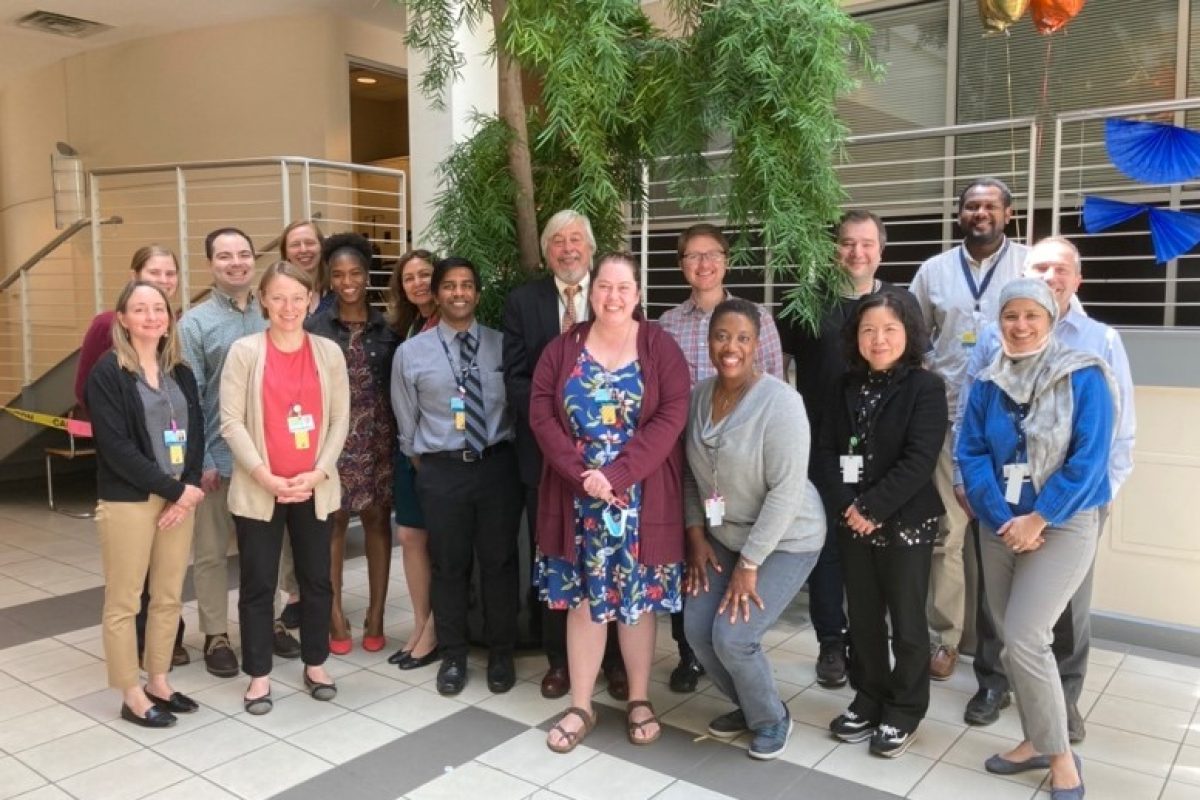
 Dr. Roth became the Director of COAH in January of 2012 and has served in this position for over 11 years. His colleagues in the Center are grateful for his decade of steadfast leadership and commitment to the Center’s mission: to discover new and more effective ways to promote the health and well-being of older adults, and to help them continue to make valuable contributions to our communities. Empowering innovative colleagues, collaborating with interdisciplinary research teams, and mentoring students and trainees have all been hallmarks of his leadership. Dr. Roth created a climate in which members from Johns Hopkins University’s schools of Medicine, Public Health, and Nursing collaborate with partners around the world on shared goals in population health and applied gerontology in the areas of research, training, clinical care, and public service. Dr. Roth gave the M. Powell Lawton lecture this past fall at the Gerontological Society of America, focusing on his body of work in applied gerontology, including groundbreaking work on family caregiving that incorporates epidemiology and health services research perspectives. Cumulatively, the impact of his work on improving the quality of life of older adults and their family caregivers has reached large numbers of older adults.
Dr. Roth became the Director of COAH in January of 2012 and has served in this position for over 11 years. His colleagues in the Center are grateful for his decade of steadfast leadership and commitment to the Center’s mission: to discover new and more effective ways to promote the health and well-being of older adults, and to help them continue to make valuable contributions to our communities. Empowering innovative colleagues, collaborating with interdisciplinary research teams, and mentoring students and trainees have all been hallmarks of his leadership. Dr. Roth created a climate in which members from Johns Hopkins University’s schools of Medicine, Public Health, and Nursing collaborate with partners around the world on shared goals in population health and applied gerontology in the areas of research, training, clinical care, and public service. Dr. Roth gave the M. Powell Lawton lecture this past fall at the Gerontological Society of America, focusing on his body of work in applied gerontology, including groundbreaking work on family caregiving that incorporates epidemiology and health services research perspectives. Cumulatively, the impact of his work on improving the quality of life of older adults and their family caregivers has reached large numbers of older adults.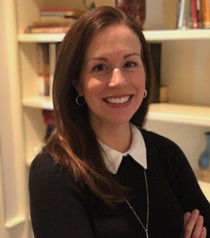 Dr. Jennifer Schrack is an epidemiologist and gerontologist who studies the intersection of movement and health in late life. Dr. Schrack is currently the PI or MPI of multiple NIH-funded grants focused on how changes in movement and physical functioning associate with changes in physical and cognitive health in late life. Dr. Schrack is also the MPI of the National Health and Aging Trends Study (NHATS), a large and robust ongoing cohort study of the health and function of older adults, along with Dr. Vicki Freedman from the University of Michigan. Dr. Schrack is excited to grow the scientific focus of COAH through several initiatives with COAH’s partners in the School of Medicine, the Bloomberg School of Public Health, the School of Nursing and more. Working with interdisciplinary partners across the university, Dr. Schrack aims to leverage the NHATS dataset and the associated claims and geographic linkages to examine contributors to and consequences of disability and accommodations in late life. Furthermore, Dr. Schrack aims to grow interventional research focused on helping older adults function optimally as they age. A respected mentor, Dr. Schrack is looking forward to helping strengthen training programs in aging and foster the future academic success of students, fellows and junior faculty.
Dr. Jennifer Schrack is an epidemiologist and gerontologist who studies the intersection of movement and health in late life. Dr. Schrack is currently the PI or MPI of multiple NIH-funded grants focused on how changes in movement and physical functioning associate with changes in physical and cognitive health in late life. Dr. Schrack is also the MPI of the National Health and Aging Trends Study (NHATS), a large and robust ongoing cohort study of the health and function of older adults, along with Dr. Vicki Freedman from the University of Michigan. Dr. Schrack is excited to grow the scientific focus of COAH through several initiatives with COAH’s partners in the School of Medicine, the Bloomberg School of Public Health, the School of Nursing and more. Working with interdisciplinary partners across the university, Dr. Schrack aims to leverage the NHATS dataset and the associated claims and geographic linkages to examine contributors to and consequences of disability and accommodations in late life. Furthermore, Dr. Schrack aims to grow interventional research focused on helping older adults function optimally as they age. A respected mentor, Dr. Schrack is looking forward to helping strengthen training programs in aging and foster the future academic success of students, fellows and junior faculty.